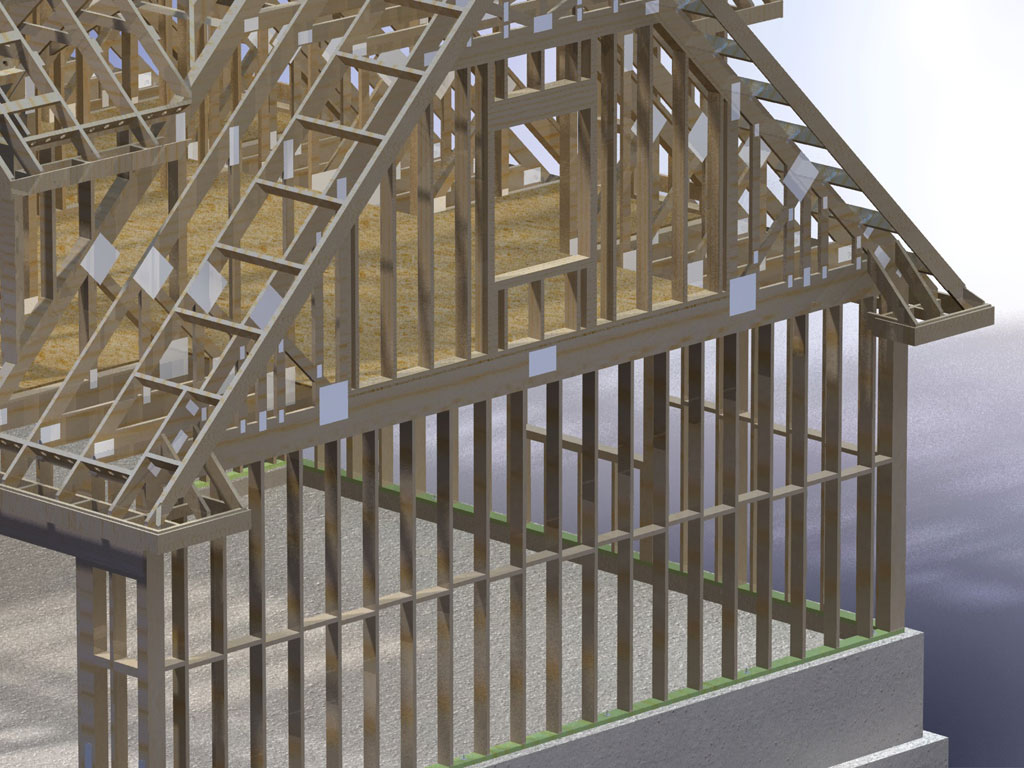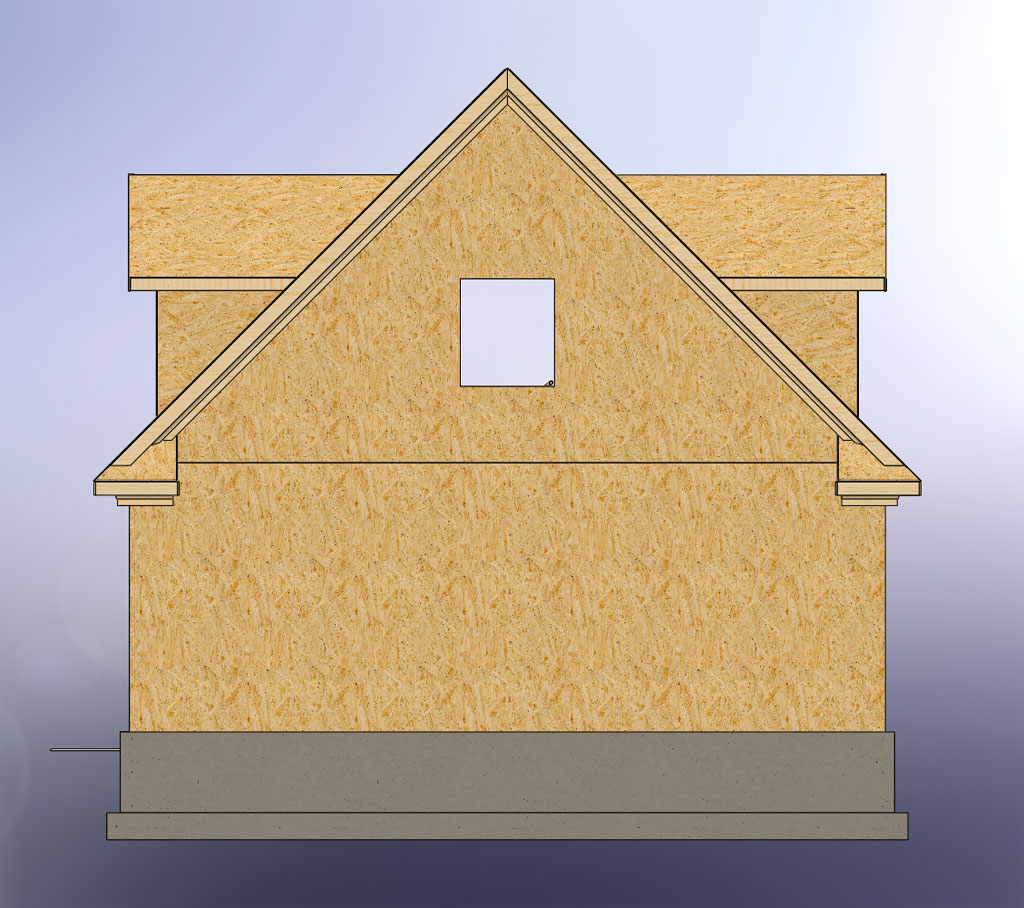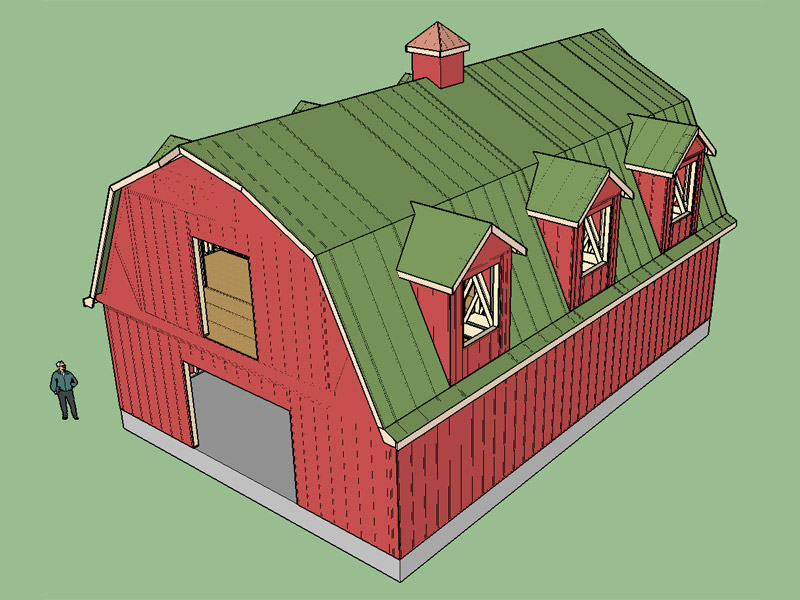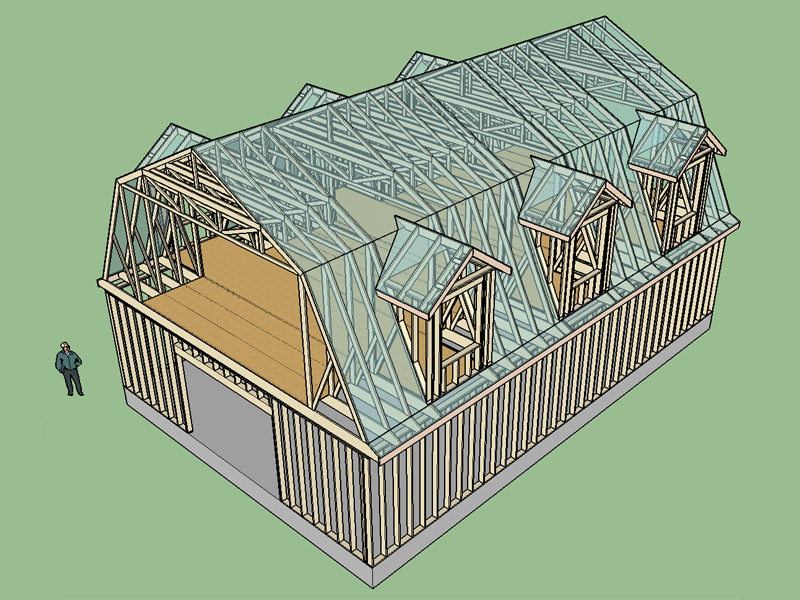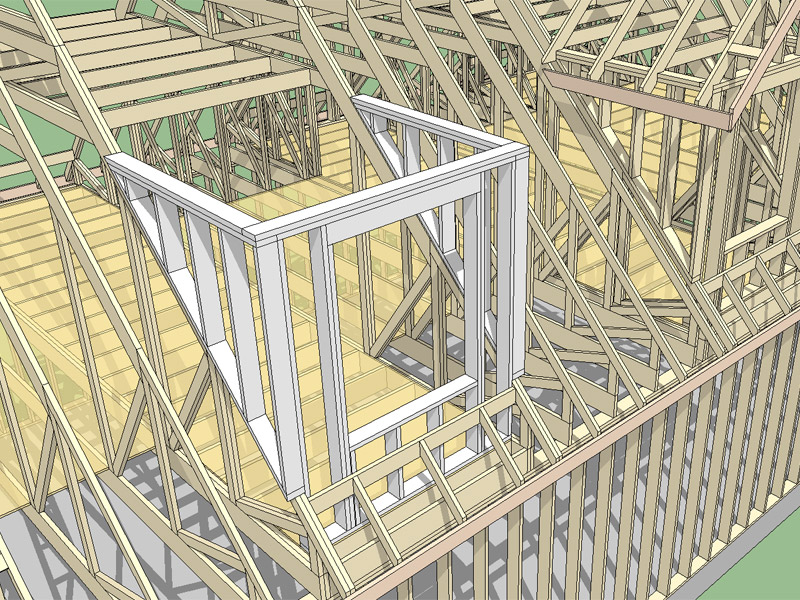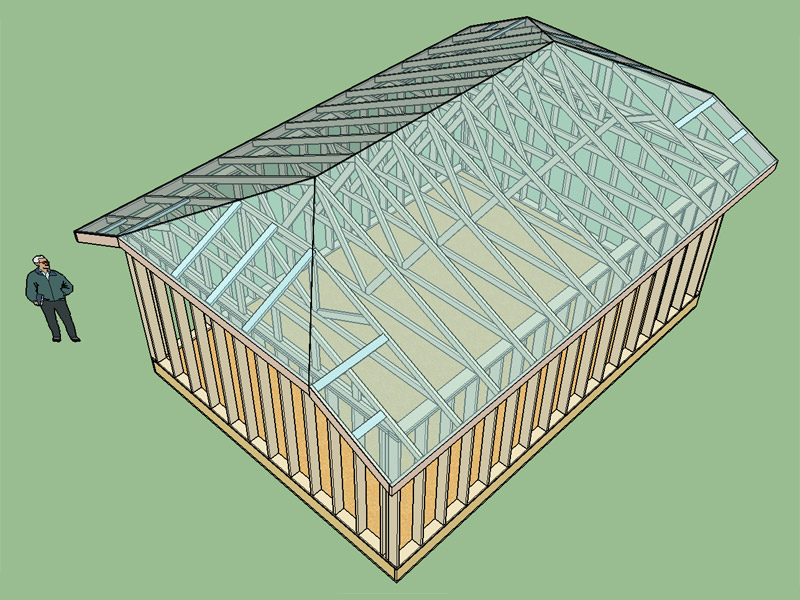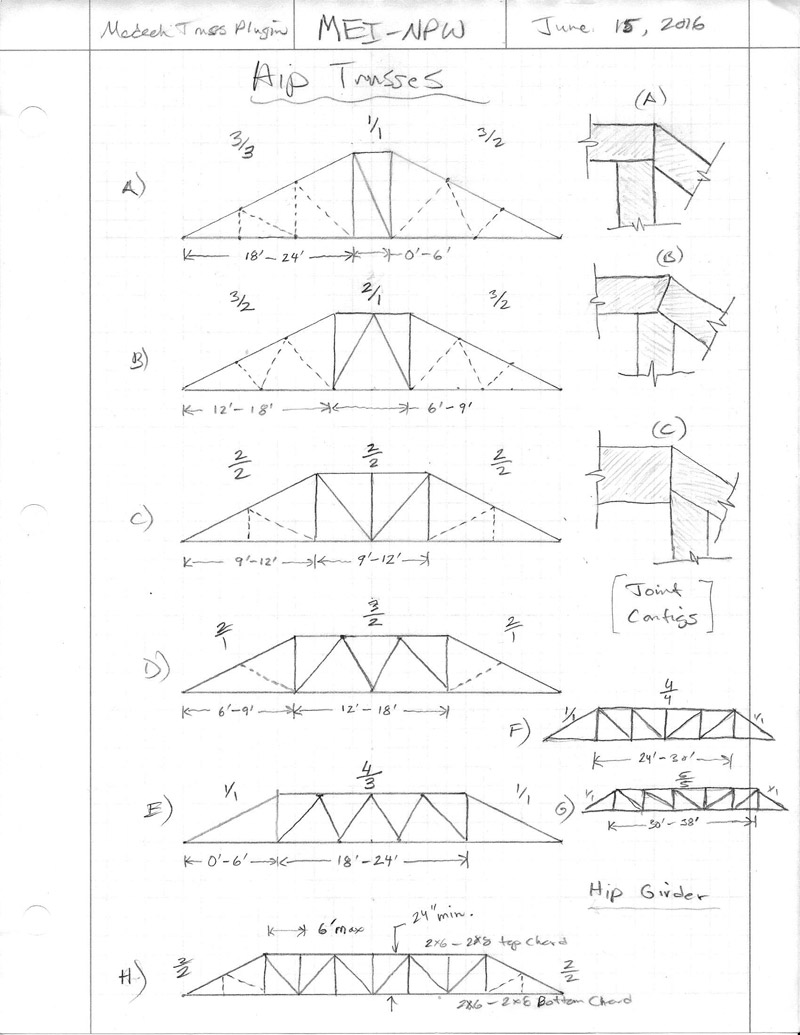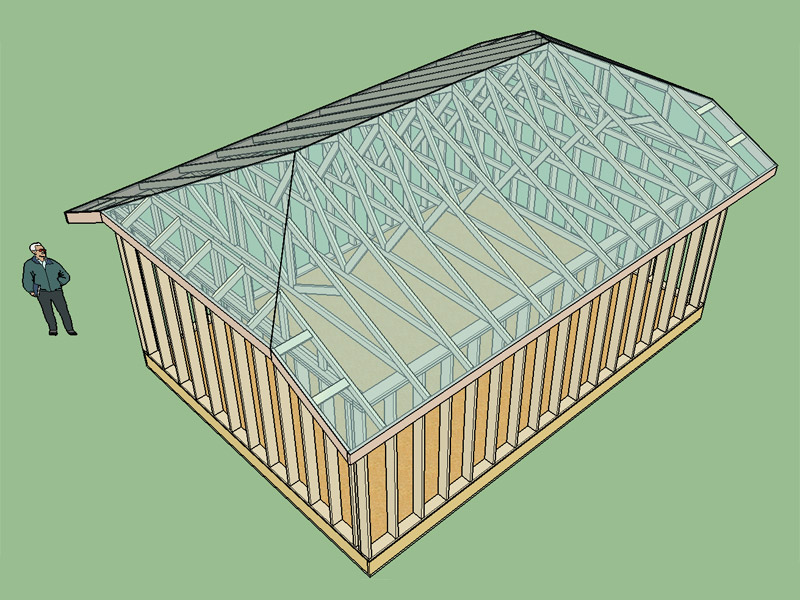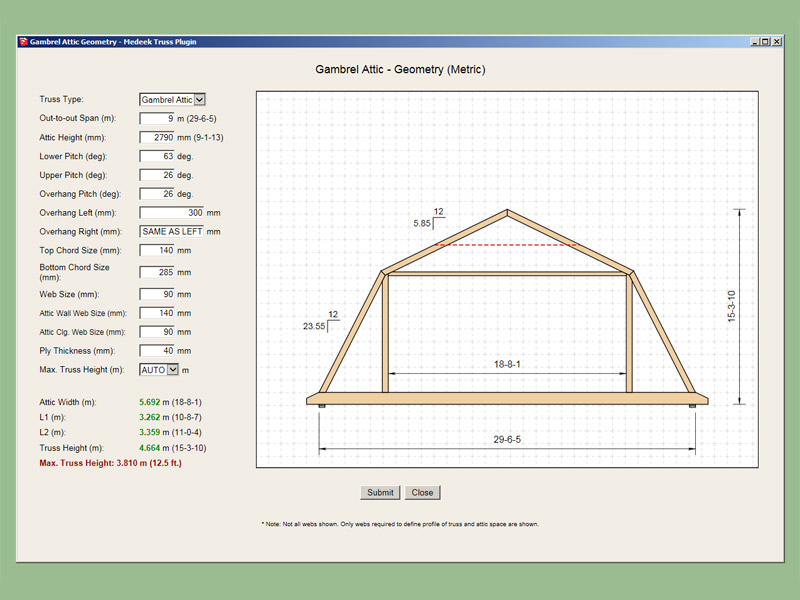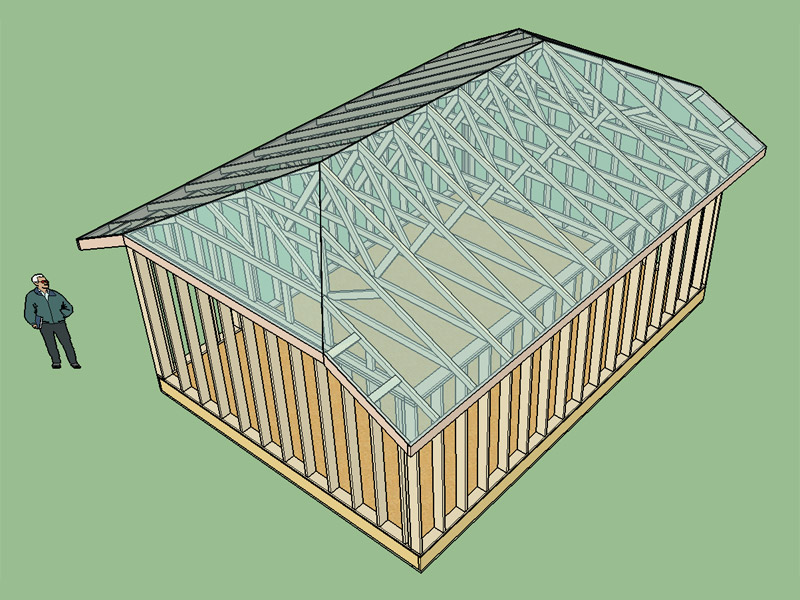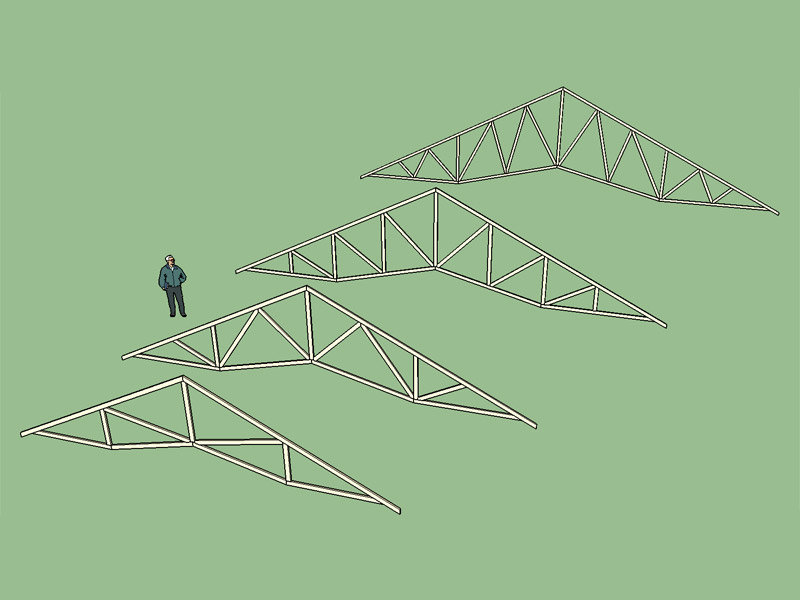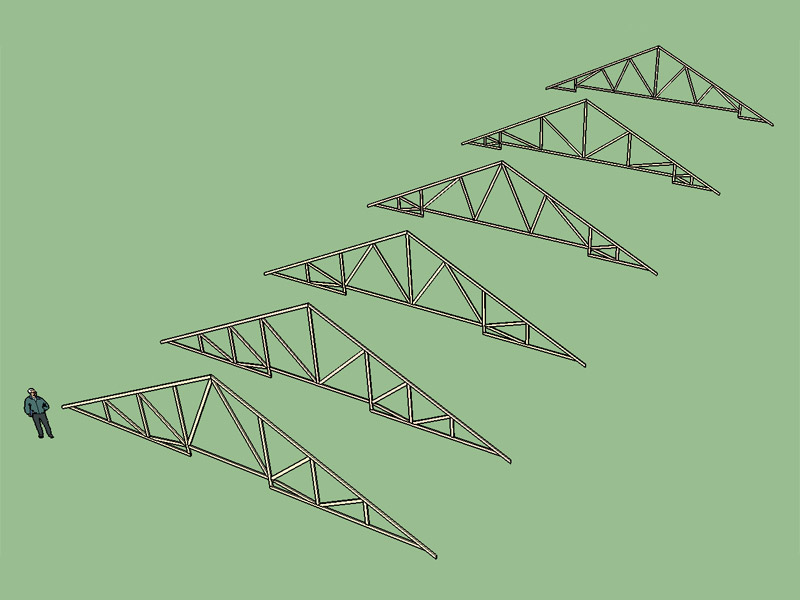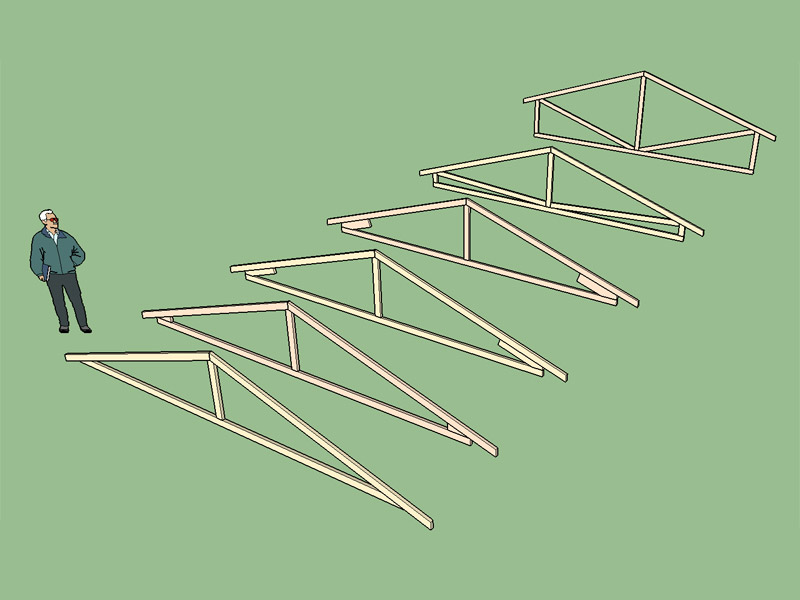A quick study of a hip return:
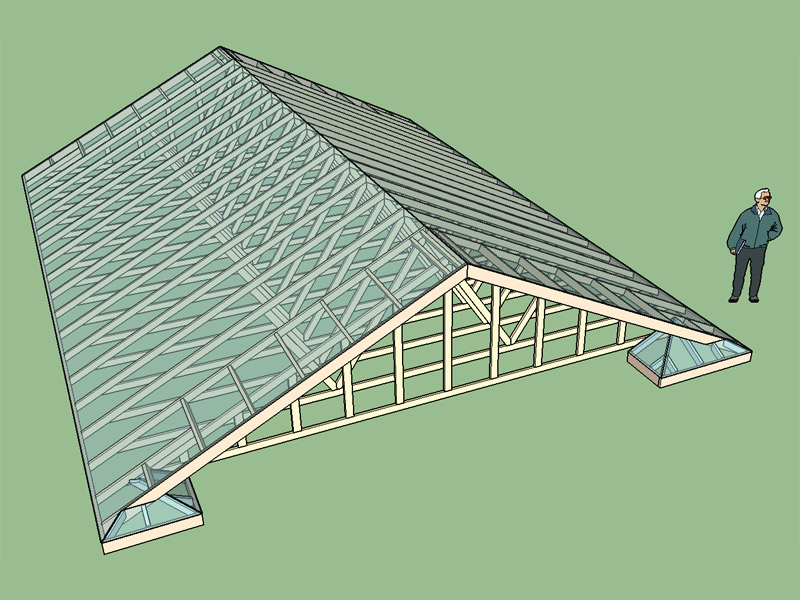
Notice the inboard hip rafter does not terminate at the gable wall when the return length is too short. This poses some interesting framing given this situation, note the return on the right side of the roof is this case, not entirely sure how one would support/terminate the hip rafter in this situation.
When the return length allows the hip rafter to terminate at the gable wall then the framing is fairly straightforward.
The hip rafter will terminate at the gable wall when the return length is greater than or equal to twice the total return extension (Rakeboard Width + Gable Overhang + Return Extension).
The other question that I have is how to apply the sheathing to these small odd shaped roof segments. How far up under the overhang should the sheathing extend?
View model here:
https://3dwarehouse.sketchup.com/model.html?id=482d84f7-52a6-4b56-bf7d-4f373d825ec0
https://www.kubity.com/p/ytJPd4

Notice the inboard hip rafter does not terminate at the gable wall when the return length is too short. This poses some interesting framing given this situation, note the return on the right side of the roof is this case, not entirely sure how one would support/terminate the hip rafter in this situation.
When the return length allows the hip rafter to terminate at the gable wall then the framing is fairly straightforward.
The hip rafter will terminate at the gable wall when the return length is greater than or equal to twice the total return extension (Rakeboard Width + Gable Overhang + Return Extension).
The other question that I have is how to apply the sheathing to these small odd shaped roof segments. How far up under the overhang should the sheathing extend?
View model here:
https://3dwarehouse.sketchup.com/model.html?id=482d84f7-52a6-4b56-bf7d-4f373d825ec0
https://www.kubity.com/p/ytJPd4

